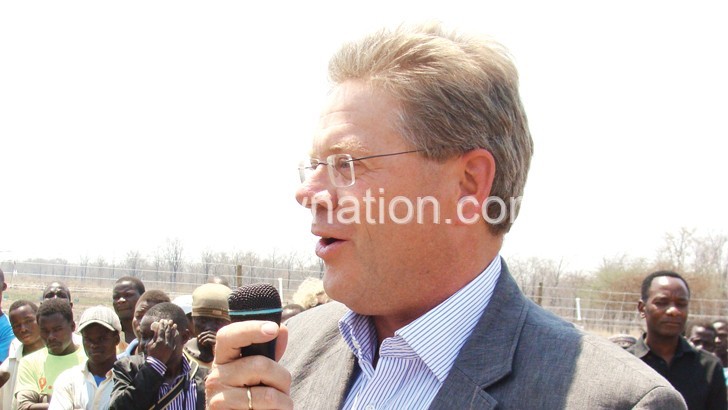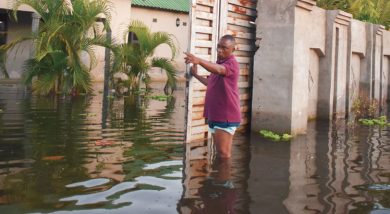Malawi has not moved in 5 years—Woeste
German Ambassador Peter Woeste says Malawi has not developed in the last five years hence the need to have policy changes that can transform people’s lives and stop recurrent challenges like hunger.
Despite implementing several reforms in agriculture and introducing the Farm Input Subsidy Programme (Fisp), Malawi continues to face hunger which this year is threatening over eight million people.
Speaking to journalists in Lilongwe after a Second High Level Forum on Development Effectiveness on Wednesday, Woeste, who is also current chairperson of Development Partners Troika, said donors are still helping the country in certain aspects but there is need for a policy shift.

He said: “We did not really move in the last five years. Today we discussed a lot of issues pertaining to policy changes because we are critical of certain aspects, including the ban on exports of maize.
“There is also need to have land rights sorted out because policy changes are important if investors are to be attracted.”
Woeste added that Malawians need to take family planning seriously and diversify their eating habits.
In a separate interview, Minister of Finance, Economic Planning and Development Goodall Gondwe agreed that Malawi needs to reform its agricultural system.
“For a long time, we have been depending on smallholder farmers but now we need to invest heavily in irrigation projects that can help large-scale producers grow enough maize both for consumption and export,” he said.
On the future of Fisp, the minister said the policy has to change as well but it has to be done gradually.
“Subsidy policy has to change also and currently we are doing it at a reduced scale and in future we will continue spending less,” said Gondwe.
In his opening speech presented at the meeting, Secretary to the Treasury Ronald Mangani said due to a number of factors, Malawi’s agricultural system fails to cope with the national demand for food and that perpetual humanitarian food intervention and relief is a huge compromise on national pride, unsustainable and crowds out resources from other priority key areas of national significance. n





